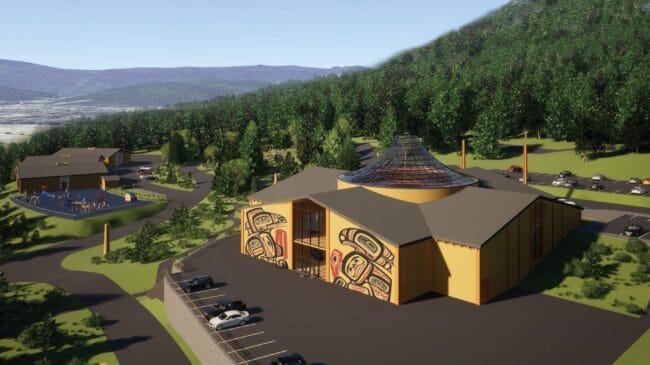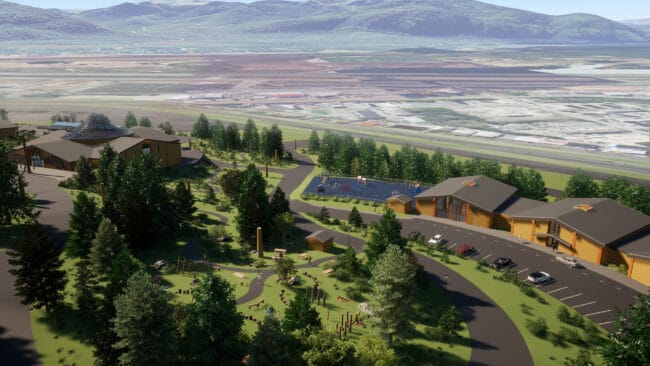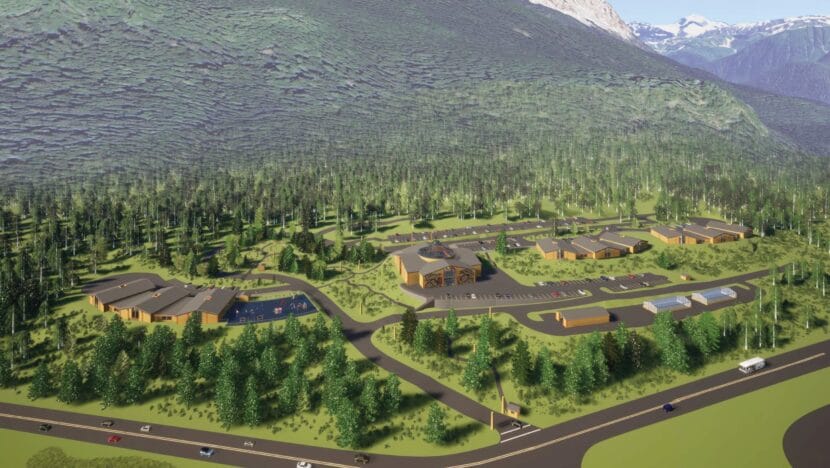A new campus slated for Juneau will be dedicated to immersing children in Alaska Native culture and languages, according to the Central Council of the Tlingit and Haida Indian Tribes of Alaska.
Tlingit and Haida President Chalyee Éesh Richard Peterson announced the plans last week during his State of the Tribe address at the 89th Annual Tribal Assembly. The 12-acre tribal education campus would serve students from early childhood into college.
“We’re trying to build a village. To bring land back isn’t just a social movement — it’s our way of life,” he said. “It’s bringing the lands that were traditionally ours, and taking them and making them ours again, and giving our people the space to thrive.”
A walking path weaving through the property would connect the campus buildings. Current Tlingit and Haida education programs will come together on the site, and so will a new tribal college and K-12 school program. Last year, Tlingit and Haida was one of five tribal organizations to receive a state-tribal education compacting grant.
Education compact agreements allow tribes to develop their own K-12 curriculum and schedule. But, unlike charter schools, they’d be independent of existing public school districts.
Peterson says the goal of the campus and the tribal schools program is to improve education outcomes for Alaska Native students by providing culturally relevant, place-based lessons.
“What we’re trying to do is give us a sense of ourselves. That our children can be grown up and raised surrounded by our own art, our own languages. That our languages float through the air every day,” he said.
The campus will also have a space for a new event center. Peterson says he hopes it can be a gathering place for major events like Celebration, the Gold Medal Basketball Tournament and Native Youth Olympics.

And there’s room to expand. The 12-acre property — located behind Fred Meyer — is just a portion of 42 acres of land on Glacier Highway that the tribe recently acquired.
“Our goal is to grow it out. We’ve already gotten some feedback,” he said. “Classrooms need to be a little bigger, we need more parking — but we have the space for that.”

The tribe likely won’t break ground on the project for at least a few years, with fundraising happening over the next three-to-four years. Peterson says a lot could still change about the plan during that time.
During the assembly last week, the tribe also unveiled a plan for a cultural immersion park on more than 450 acres of land near Tee Harbor. That project is in partnership with Allen Marine Tours.


